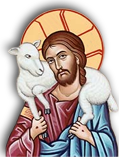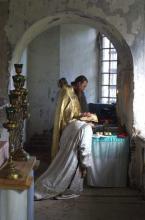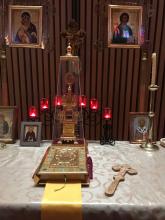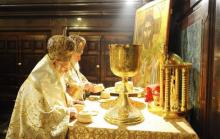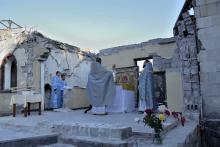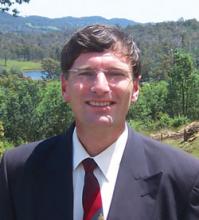The Grace of the Holy Mystery of Repentance
Learning to live a life of repentance is aided greatly by the Holy Mystery of Repentance. Commonly called “Confession,” it brings enormous relief from the burden of sin. Sin erects a barrier that feels like it cuts us off from God, interrupting our intimacy with Him. Confessing our sins to Christ and being assured they are forgiven restores intimacy.

